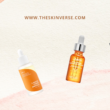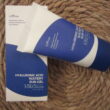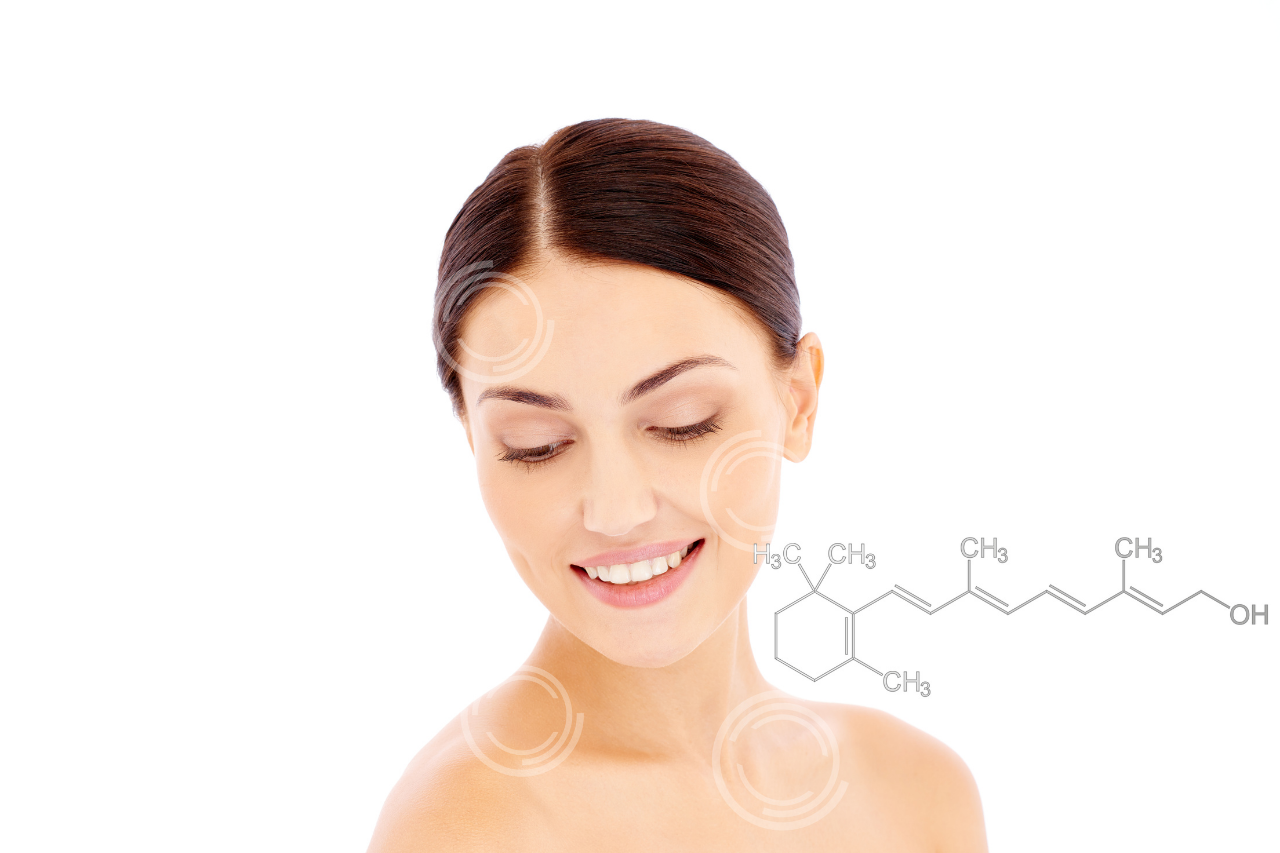Sunscreen for acne prone skin selection is usually double trouble for most of us with oily, acne-prone skin. On one hand, it has to protect your skin from damaging UV lights while making sure it won’t worsen the acne. On the other hand, it has to be nourishing enough so it will provide hydration + sun protection.
So, the question begs the answer: How to protect your skin from the Sun while making sure not to break out all over your face? Here are 6 easy tips to help you with your search for sunscreen for acne-prone skin.
Should you wear sunscreen if you have acne?
The short answer is: Yes! No matter your skin type, exposing your skin directly to the sun every day is a very bad idea, we are mostly aware of that. Can you believe that not so long ago, the sun was not at all considered an arch-enemy for skin with acne? Quite the opposite, irradiation under ultraviolet lamps was one of the treatments for acne and was prescribed by doctors.
With the UV lights being able to “dry the acne out”, it visually improved the appearance of acne. However, since UV lights dry out the epidermis, due to the lack of moisture, the skin produces even more sebum (oil) to overcompensate for the lost moisture.
And this lack of moisture leads to even more acne and pimples. But since then, science has come a long way. Time and progress in research made it possible to thoroughly study the effect of UV rays on the skin, and put everything in perspective.
Although there is no such thing as sunscreen for acne, there is such thing as sunscreen products for acne inflamed skin. So, here are things you have to pay attention to when choosing the ultimate sunscreen for acne-prone skin.
#1 Tip: Look for non-comedogenic sunscreens

We get it, it is not easy dealing with acne-prone skin, let alone choosing a sunscreen. But by just following some labels, you can make your life easier. If a product is non-comedogenic, it simply means it is not going to clog your pores which is the main reason why you develop acne in the first place.
This is one of the fundamental factors to consider before choosing sunscreen for acne-prone skin.
That doesn’t necessarily mean it will magically make them disappear, but it is a good place to start in order to prevent it. Also, don’t use sunscreens on your face that are meant for your body. They are thicker in texture and might lead to further breakouts.
Go for oil-free formulas, as they will be lightweight and easily absorbed without feeling greasy which is a major problem when it comes to oily, acne-prone skin. Oils like coconut oil, olive oil, argan oil should strictly be avoided.
#2 Tip: Go for a broad spectrum sunscreen
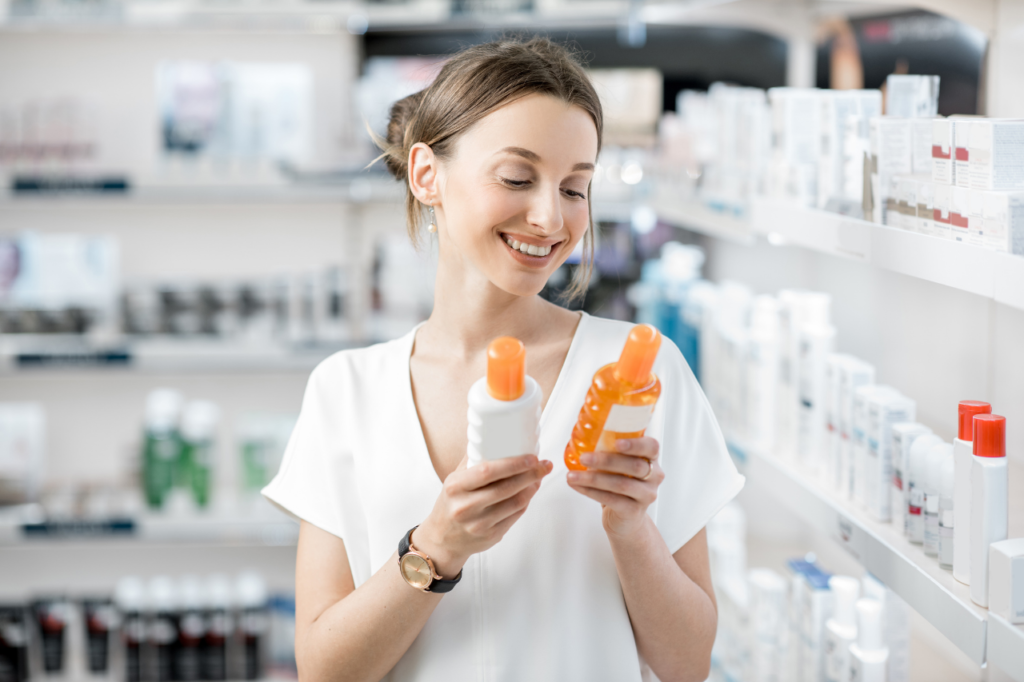
What does broad spectrum mean? According to AAD – American Academy of Dermatology Association, broad-spectrum means sunscreen that protects the skin from both UVA (ultraviolet A) and UVB (ultraviolet B) rays which are the main contributors to skin cancer.
Some sunscreens will protect the skin only against UVB lights, but it is better to make sure that you get complete protection by fighting off both types. Choose a sunscreen with an SPF 30 or higher.
On a beach day or by the pool, look for water-resistant formulas.
#3 Tip: Texture matters: Choose light textured sunscreen for acne prone skin

The lighter the texture of the sunscreen, the faster it is absorbed, and the more comfortable the remedy for problematic acne developing skin. The challenge here for skincare manufacturers is combining effective sun protection with the lightest and most comfortable consistency.
As we mentioned before, thick consistencies are not absorbed well, you don’t want your sunscreen to clump up on top of your skin. When it comes to specific consistency, sheer lotions, gel-like, and fluid ones would be your best bet here.
You can also pick sunscreen sprays, just make sure you cover the whole area that needs protection. Don’t skimp on applying the spray, so you won’t miss the necessary areas. I go with 2 fingers rule and feel like it works for most people.
And let’s be real, no one likes a shiny finish after applying sunscreen. A good matte sunscreen will do the trick. Silky, lightweight, almost-undetectable matte formulas are perfect for acne-prone, oily skin.
#4 Tip: Prep your skin before applying sunscreen

Before finding sunscreen for acne-prone skin, it is a must to do the groundwork. Because acne-prone skin tends to be oily, it is almost a life or death situation to clear it out before moving to sunscreen.
It is certainly important to exfoliate properly using chemical exfoliants (a huge NO to using scrubs), BHAs are great for acne-prone skin. Use cleansers or face washes with salicylic acid that will eliminate dead skin cells and give you that healthy look.
Then, move to a moisturizer with acne-fighting ingredients like tea tree oil, charcoal, and green tea. And finish off with sunscreen, obviously!
#5 Tip: High SPF Factor is important
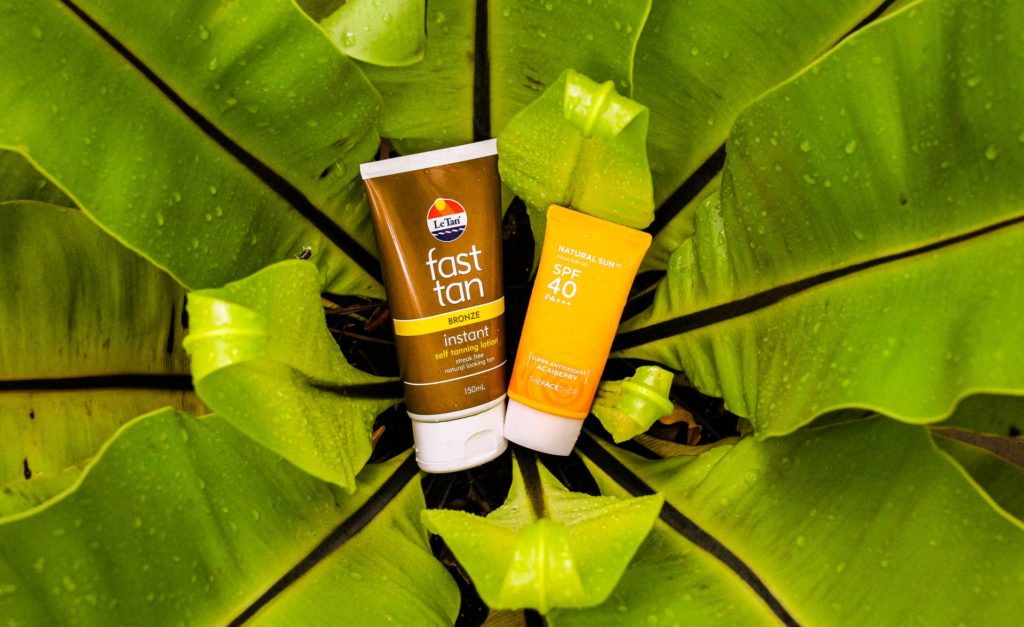
SPF stands for Sun Protection Factor. You know the drill: Higher the number, stronger the protection. An SPF 30 will block 97% of UV lights. Don’t fall for the marketing tactics of some companies that promise SPF 100 or higher, it is just factually correct.
And remember, the sun affects your skin all year round. Rain or shine, sunscreen every day. Make sure to reapply your sunscreen every 2 hours, especially on hot summer days.
At the end of the day, sun protection is exactly the goal behind scavenging sunscreen for acne-prone skin.
#6 Tip: Avoid sunscreens with oils, parabens

Oils like coconut, olive, palm are extremely comedogenic and they lead to extensive acne breakouts. Exfoliating (acids), sebum-regulating, and antiseptic agents are always welcome when choosing sunscreen for acne-prone skin.
Be wary of “oxybenzone”, as it is a common player in allergic reactions, as well as is considered one of the most toxic ingredients found in skincare products.
In case your skin is hyper-sensitive, go for physical sunscreens that use ingredients like zinc oxide, titanium oxide.
More on natural sunscreens: Should You Get A Natural Sunscreen?
Bonus Tip: Lean to moisturizers with an SPF
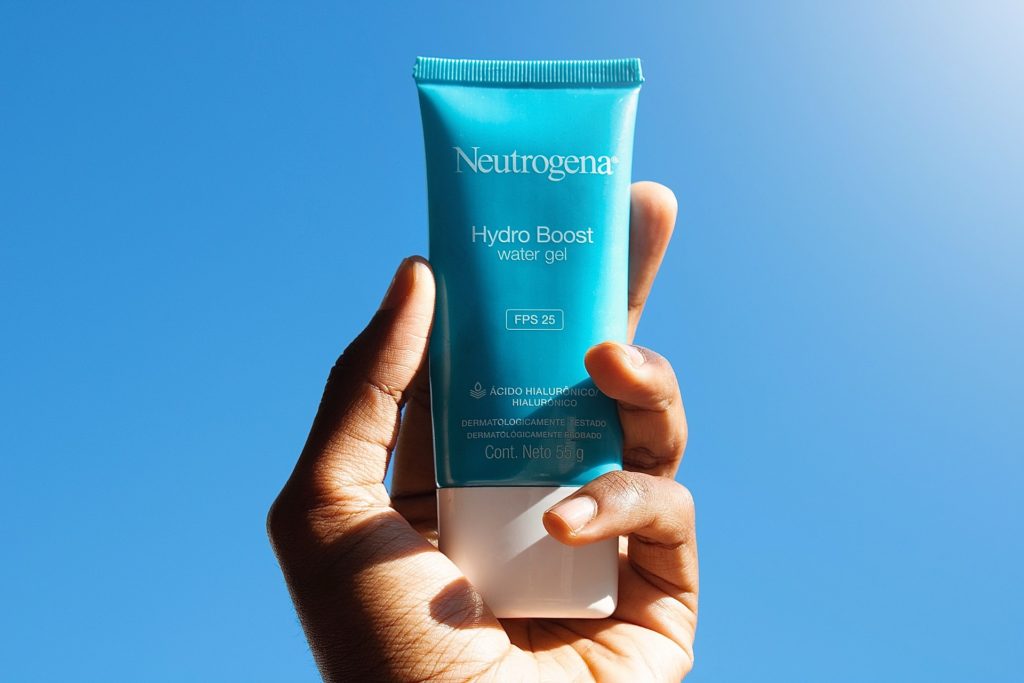
If you want to save yourself from the effort of layering products on your skin, then a moisturizer with an SPF is made for you. Normally, sunscreen is the last step of your skincare routine, after layering your moisturizer.
You might think that you don’t need to moisturize if you have oily, acne-prone skin. But oily doesn’t mean moisturized. By choosing a product that does both, you save yourself money and time. Again, no heavy, thick moisturizer. Opt for lightweight, gel-like formulas.
You will find plenty of effective products if you shop around. Give some of them a try to find your go-to sunscreen for acne-prone skin.
A word from THESKINVERSE
No matter what product you choose to use, always make sure to use it right. At the end of the day, regardless of your skin type, your sunscreen should do its job by safeguarding your skin against harmful UV rays.
You can choose to treat applying sunscreen as a habit rather than treating it as a chore. It takes some time to adjust, and find the ultimate sunscreen for acne prone skin, but once you get it under control, you will be pleased with the results. Finding the right sunscreen for acne prone skin is definitely not an impossible task!
And if you need some extra caution or information, ask your dermatologist for help.



